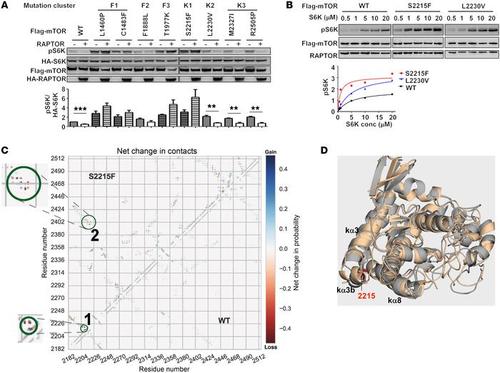Mechanistically distinct cancer-associated mTOR activation clusters predict sensitivity to rapamycin

Xu Jianing, Pham CG, Albanese SK, Dong Yiyu, Oyama T, Lee CH, Rodrik-Outmezguine V, Yao Z, Han S, Chen D, Parton DL, Chodera JD, Rosen N, Cheng EH, and Hsieh J. Journal of Clinical Investigation, in press. DOI
This paper was the result of a collaboration with the Hsieh Lab at MSKCC. Clinically-observed mutations in clear cell Renal Cell Carcinoma patients at Memorial Hospital were identified to activate the activity of mTOR kinase, studied using a number of traditional biochemical and pharmacological assays. These mutants were shown to activate the kinase through mechanistically distinct ways, and MD analysis suggested that the mutants could cause structural rearrangement in the protein. Further assays showed that the mutants can be used to predict rapamycin sensitivity.
